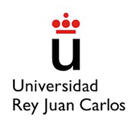The Harvard Family Research Project separated from the Harvard Graduate School of Education to become the Global Family Research Project as of January 1, 2017. It is no longer affiliated with Harvard University.

|
August 25, 2015 Communication Is Key to Strong Family‒School Partnerships During the Transition to SchoolJesús Paz-Albo
|
FINE Newsletter, Volume VII, Issue 3
Issue Topic: Blended Professional Learning: Preparing and Supporting Educators to Engage Families
Voices From the Field
Students in the field of education need to acquire a broad set of skills to succeed as educators in our modern society. We need highly qualified teachers and school administrators at every educational level, and teaching with cases can be a very effective classroom technique to provide students with the necessary competencies to engage with families effectively. They promote a variety of skills that educators need to succeed, and provide a rich basis for developing problem-solving, critical-thinking, and decision-making skills.
Most scenario-type case assignments require students to apply what they have learned and think critically about the educational practices and/or strategies used to figure out solutions and the effect they have on the teaching-learning process. They help translate general ideas into concrete examples. Although decision-making is vital when developing collaborations and engaging families and children as partners in education, we need to recognize the role of teacher knowledge in this endeavor.
Since 2010 I have been using cases in the field of education to get my college students actively engaged in their own and each other’s learning process. Cases provide students with real-world situations commonly encountered by educators, a great asset in students’ learning to critique, collaborate, evaluate behaviors, and engage in reflection while they practice their critical-thinking skills, a critical competence for college education students.
Using the Bridging Worlds Case
The case material Bridging Worlds: Family Engagement in the Transition to Kindergarten was piloted with 41 prospective teachers studying for a degree in early childhood education from Universidad Rey Juan Carlos in Madrid (Spain). In planning for this case session, the instructor drew on the teaching case-based training package . This resource helped the instructor to prepare for the case discussion, identifying the learning objectives and deciding on the activities to extend the case discussion.
Students were provided with the Bridging Worlds case a week before the two-hour session so they could read the case on their own. In order to motivate the students to complete the reading assignment before class, the instructor graded the participation during the discussion of the case. During the case session, the instructor used the PPT presentation provided with the instructor notes on the importance of the kindergarten transition and families’ roles as a means to lead the case discussion, and then adopted some of the discussion questions provided to facilitate the case discussion. In order to extend the case discussion and engage all the students in a dialogue, the instructor divided students into groups to provide for the “Empathy Map” organizing activity to help students develop a better understanding of how characters think and feel, and then had the group present their answer and reasoning.
After the case session, participants were asked to complete a post-session evaluation in order to gather information about:
- how well they understood the material,
- what they liked most about the case,
- what was challenging about the case,
- whether there was more information that they wish that they had access to,
- what they learned from the case and discussion,
- whether the case helped them to think about any of their experiences or coursework differently, and how,
- how they might apply what they learned from the case in their own work, and,
- whether they have used cases in any of their other courses, and whether they would like to see more cases in their coursework.
The Case Inspired Students to Think Deeply About the Transition to School
Below are some themes that emerged from the student evaluations. An examination of the content suggests that the case stimulated students to think beyond the class and develop insights for future actions.
- Communication is important to family‒school relationships. Most students were proactive and offered some advice for how communication could be improved among the multiple stakeholders in the case.
- Engaging parents in the transition to kindergarten is important. Students realized family engagement was important and suggested ways to approach engaging the mother and daughter in different ways.
- Building partnerships among families, schools, and communities is also important. Students also recognized that parent‒teacher partnerships are powerful, and without good relationships, children can suffer.
- There is a need for providing schools and parents with the necessary support. Students believed that both school staff and families need support around the transition to school and tools to see each other’s strengths and challenges.
Reflections
The case method is extremely valuable for exposing students to real-world situations. For large groups, I have found it useful to have students form smaller groups to motivate and stimulate attentiveness. However, as with other teaching methods, the effective use of case studies requires instructors to determine the learning objectives and plan for the class session. In planning for a case study, students will need clear instructions on what their responsibilities are when preparing the case before, during, and after the class session, and if supplementary reading assignments are required as a means of promoting growth and development of each student.
Read the rest of the faculty reflections.
About Jesús Paz-Albo:

Jesús Paz-Albo, faculty member, Universidad Rey Juan Carlos, Departamento de la Educación, el Lenguaje, la Cultura y las Artes
This resource is part of the August FINE Newsletter. The FINE Newsletter shares the newest and best family engagement research and resources from Harvard Family Research Project and other field leaders. To access the archives of past issues, please visit www.hfrp.org/FINENewsletter.
